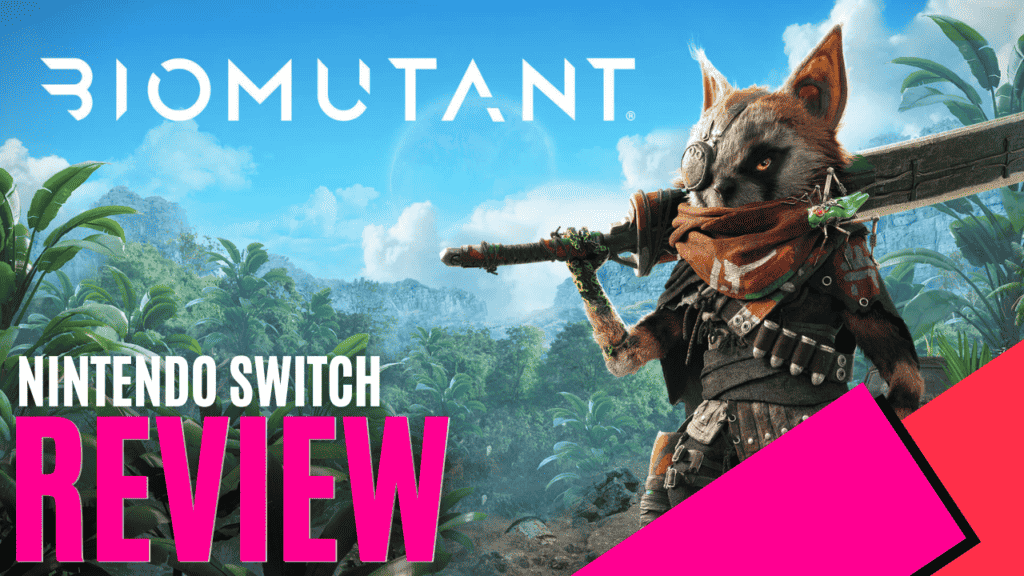
We’ve seen a lot of anthropomorphic, martial arts practicing critters in media, but not done quite in the way Biomutant does. Originally released on all other platforms in 2021, Biomutant’s made its way to the Nintendo Switch in 2024. Though the port of Experiment 101 and THQ Nordic’s title, doesn’t quite hit the mark.
Biomutant’s Nintendo Switch port is by Saber Interactive, which has done a number of remasters and ports over the years, including the immensely popular The Witcher 3: Wild Hunt Nintendo Switch port. They also contributed alongside 343 Industries on the Halo series remasters …and released the probably not-so-popular remake of Shaq Fu – Shaq Fu: A Legend Reborn. While mostly these games translate between different platforms decently, I can’t say the same for Biomutant.
Biomutant follows a small, rodent-like creature in an open-world, post-apocalyptic action RPG. The world is dying, the Tree of Life is withering away after a devastating natural disaster, and at its roots are 5 beasties preventing it from restoring to its former glory. To top it off, multiple tribes are at war, all fighting to expand their territories, with a goal to reign supreme.
Our little monstrosity can join forces with a tribe if they do wish to bolster the tribe’s power, or just go about their day, and save the world tree without picking a side at all. Elements of the story can change whether you decide to take the light or dark path, or somewhere in between, but it always seems more fun to go to the dark side.
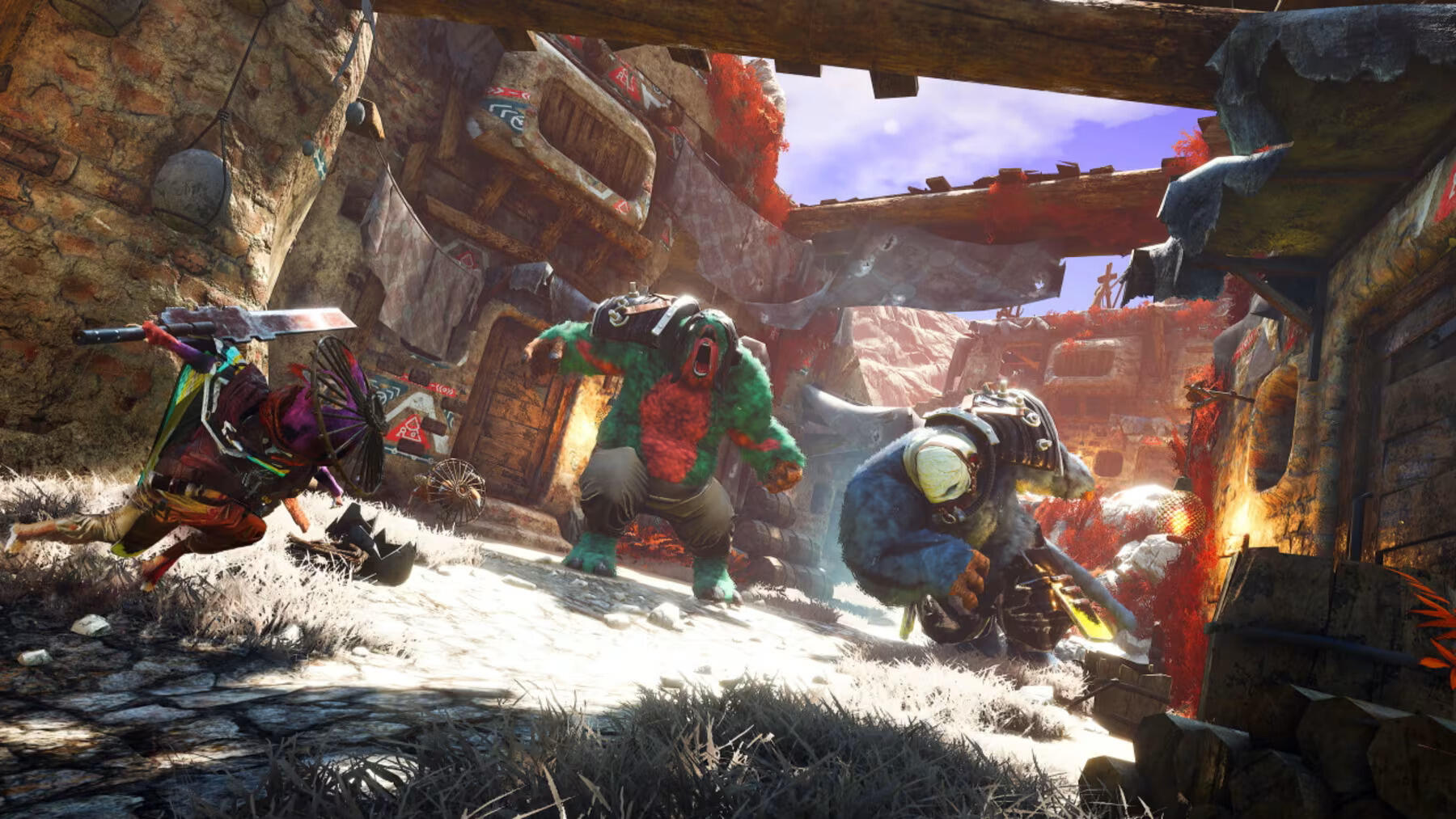
The journey takes place in a variety of biomes including lush forests, barren wastelands, and radioactive zones. Trekking through areas can be a slog, with a story that starts off very slow, with a very start-stop approach between gameplay and cutscenes that broke the immersion pretty swiftly. Quests are very copy-paste and getting from point A to B feels like a chore, even with the inclusion of mounts and vehicles to get around. The name of the game is essentially, slice and dice, loot and shoot.
The most unique feature of Biomutant for me was the character customiser, which allows you to mutate your hero to your liking starting with choosing a breed and then onto more important things. Depending on what stats the player specs into drastically changes the creature’s appearance. Putting more into Strength buffs them up, whereas going in on intellect makes your rodent have a massive head and there are plenty of variations that can be made to genes in between to make them even stranger.
Genetically modifying also determines resistance and weakness to the elements: fire, cold, biohazard, and radioactivity. Of course, there’s further customisation of gear and upgrades in-game to top it off, including a pretty expansive crafting system for gear like gas masks and oxygen canisters to help withstand the elements.
Classes include Dead-Eye, Commando, Psi-Freak, Saboteur, Sentinel, and Mercenary, they sound badass, if you’ve played pretty much any game, you’ll get the gist of what each type is. The mercenary class was previously a DLC but for the Switch release, it’s included in the base game, and that’s the class I spent the most time testing out, for the dual-wielding swordsman’s skills. It’s a nice little bonus to have this class from the jump to take advantage of the often melee-driven combat system.
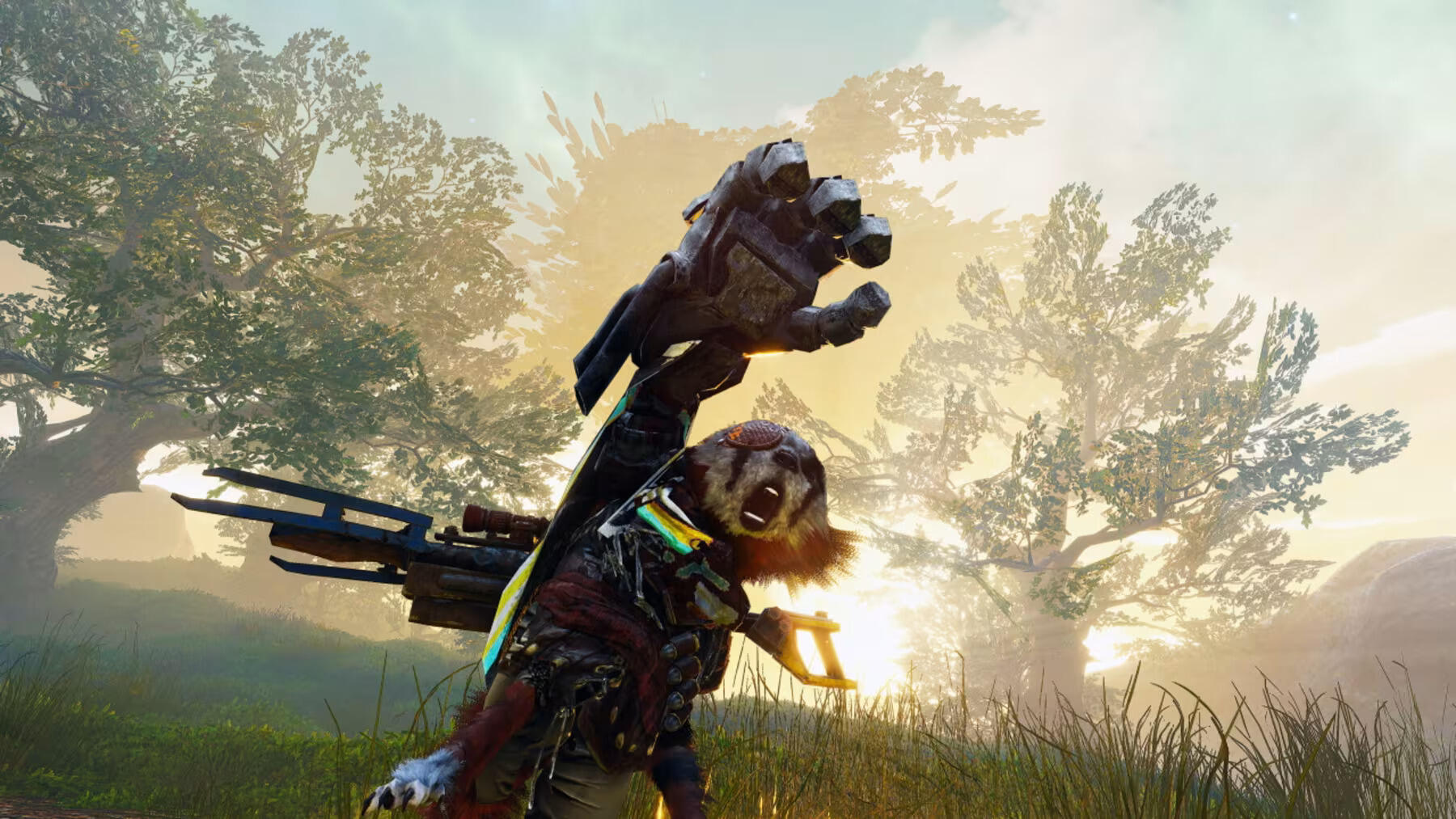
Now the combat, or Wung-Fu as it’s called in this instance is mostly centred around martial arts, albeit, martial arts that occasionally involve guns and psionic powers. Enemies are all-manner of pants-wearing, weapon-wielding animals, there are plenty of varied enemy types to go up against. With basic mechanics and an underwhelming story, as a whole, it mostly felt devoid of its own individual identity, with a fusion of ideas and influences from other games mutating together to create a muddled concept that doesn’t always feel natural to play.
Playing with Joy-Cons didn’t always feel quite right, with some inputs feeling slightly off, and with a decent amount of combat moves in the arsenal, it didn’t always feel as free-flowing as I would have liked. Radial menus made for even more to switch between and Joy-Cons were not always effective in the midst of battle.
Combat didn’t feel particularly enjoyable and there was no feeling of weight in movement. Sometimes awkward camera angles could turn the tides in a fight for the worse, and the finicky camera became an issue in exploration as well. Interestingly, the Nintendo Switch Gyroscope-Controls are usable, but tilting the controller felt even more unnatural during combat.
There seems to be an identity crisis on what Biomutant aims to be, going from comically childlike and quirky to dark and gloomy with not much air in between. This imbalance is most noticeable in the audio. The narrator sets the scene and acts as translator for all critters, who only speak in gibberish, which thankfully can be muted since they’re incredibly grating.
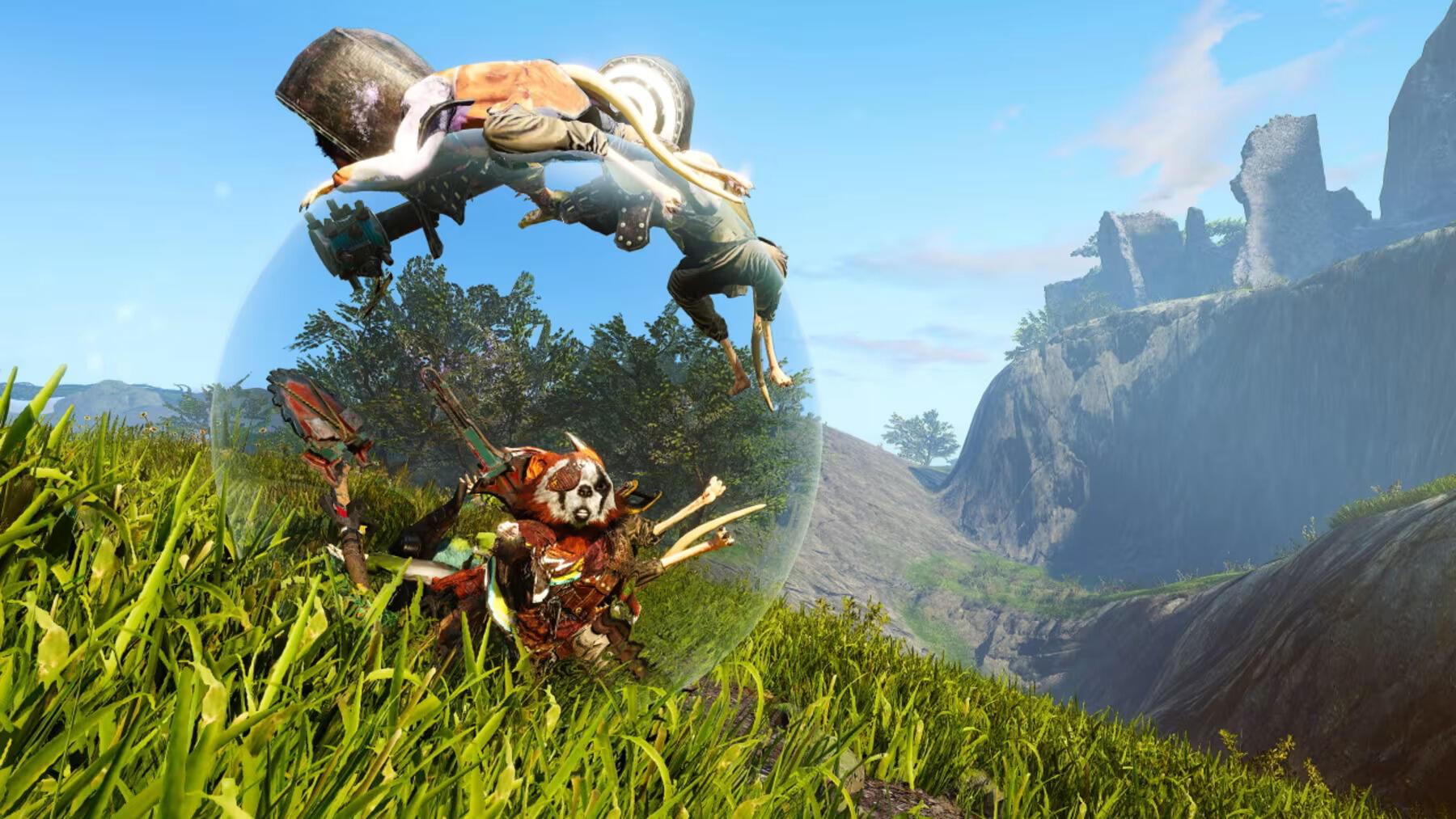
There are moments where the narrator delivers some zany one-liners that do land and there’s surprisingly dark, profound, and confronting moments, especially in flashbacks, but mostly these moments fall flat. The most beautiful moments in the game for me were through the music by the talented team of composers, fantastical orchestral music with some Asian instrumental influence tied to its martial arts inspirations.
Unfortunately, when playing the Switch handheld, the sound quality is drastically reduced, causing the stunning music and other audio to be muffled, though docked, the game sounds alright, but the sound quality is not as polished as I would like.
I spent a small amount of time in the PC version of the game for comparison; while the base gameplay was the same, the graphics quality and performance are leaps and bounds ahead, with stunning lighting, and vibrant environments, and for a recent title, the graphics feel way more dated than they should, which may be in part due to the 7 or so year old hardware, a tad older than all other gaming devices Biomutant originally arrived on.
Load times are slow, occasionally it felt like there was a frame drop and massively reduced display settings from the original version of the game on PC and consoles.
The graphical capabilities of the Nintendo Switch aren’t able to keep up with the game, which was created in Unreal Engine, well-known for its ability to process detailed lighting, textures, and environments, none of that feels present in the port.
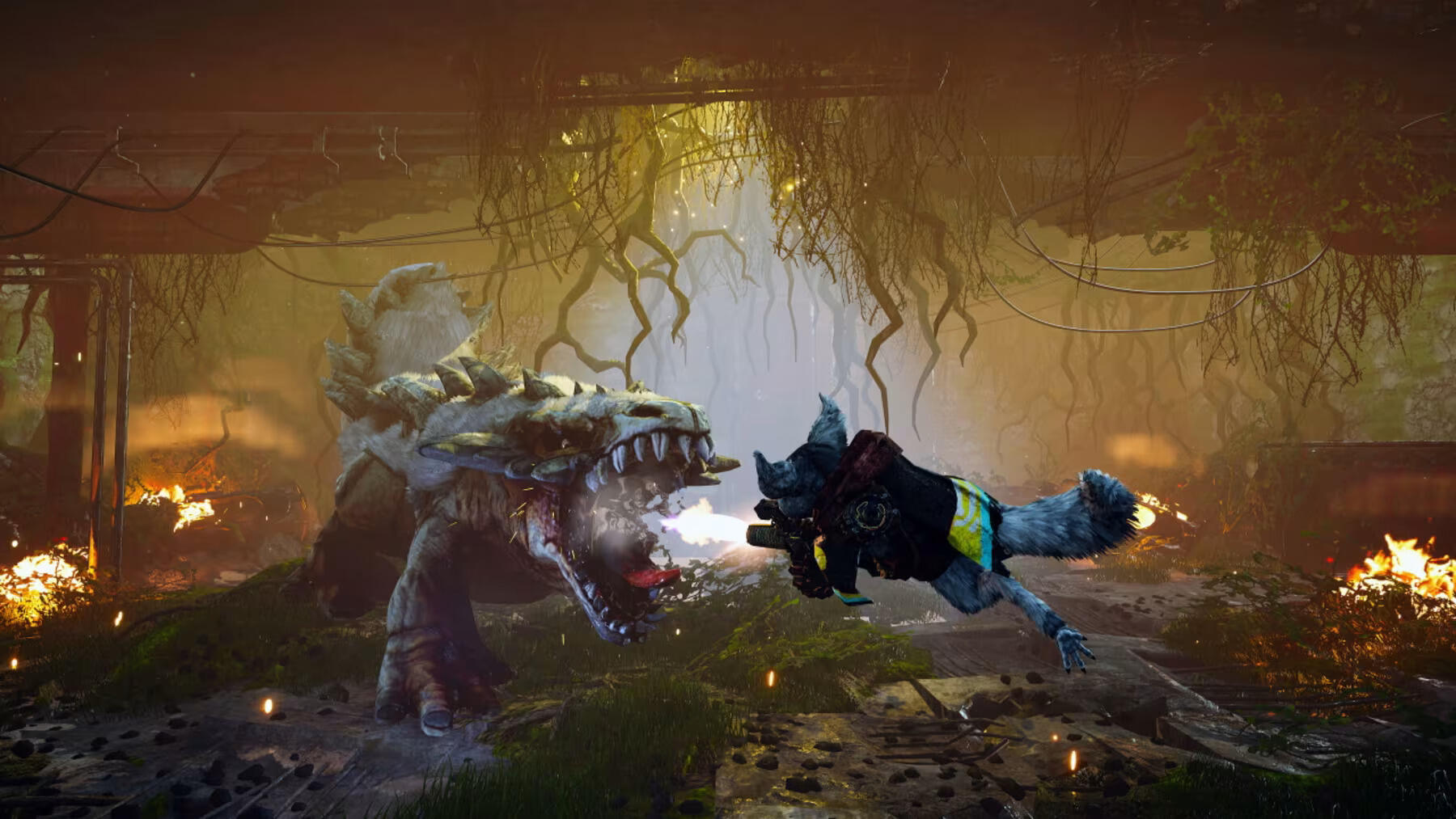
By comparison, the Nintendo Switch versions’ lighting, textures, and environments feel devoid of life. Considering the game revolves around furry creatures, the fur has very texturing making characters appear even more bizarre due to the lack of detail.
Environmental textures were the same, down to the blades of grass and rocks, texture load-in was slow and often, there was very little texture at all, to the point where the assets looked blurry. Regions didn’t capture their essence as expected, with less visual impact, minimal particles and effects, more sparse vegetation, and set pieces to build the world into something worth exploring.
For the Nintendo Switch, Biomutant is said to run at 30FPS/720p (+dynamic resolution) and its docked mode, runs at 30FPS/1080p (+ dynamic resolution). I much preferred to play handheld rather than docked, which helped to disguise some of the issues of jagged edges and lack of texturing.
As a game, Biomutant is decent but the fusion of multiple ideas doesn’t feel like it’s been honed. As a port for the Nintendo Switch, Biomutant feels dated and not anywhere near mastered, it doesn’t feel like a direct clone of the original game. If you want to experience the game for yourself, maybe pick up the title on a different device.

The Good
- Unique character customisation
- Music is fitting and well-orchestrated
- Varied classes to try out
The Bad
- Subpar technical performance on Switch
- Graphically and audio downgrades
- Long-winded, underwhelming progression








